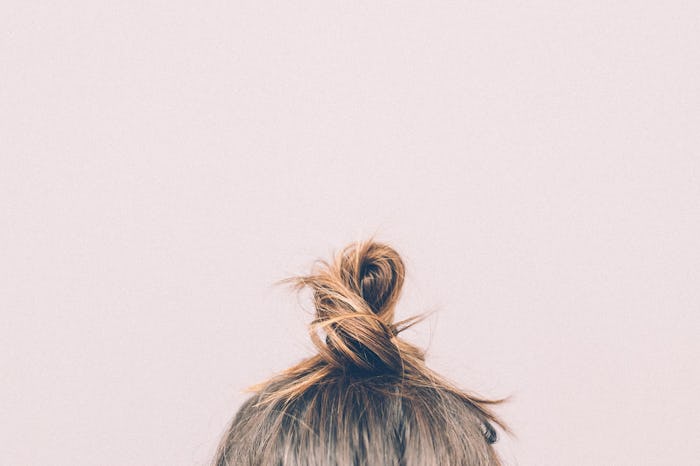Life
Studies On Postpartum Hair Loss Reveal It Can't Be Prevented, But You Can Lessen It
Moms face all sorts of changes to their bodies once they have a new baby: hemorrhoids, engorged breasts, and fatigue, to name a few. But one change you may not be expecting is hair loss. Here's what experts and studies reveal about postpartum hair loss.
Hair goes through a cycle of growth–each hair on your head grows for up to six years, then goes into a resting period for two to three months. Eventually, the hair falls out. At any given point in time, about 90 percent of the hairs on your head are growing, while 10 percent are resting.
However, during pregnancy, most of your hairs are in the resting phase, and fewer hairs are falling out. Once you give birth, normal hair loss that didn't happen during pregnancy occurs all at one time, which causes the hair to look thinner.
Postpartum hair loss affects 40 to 50 percent of new moms, according to the American Pregnancy Association. Luckily, the hormonal changes that cause hair loss are temporary, and the hair should return to normal its growth cycle within six to twelve months after giving birth. It's also usually not bad enough to create bald patches. Still, dealing with thinning hair–on top of the stresses of being a new mom–can take its toll on many women.
"As a woman, you really do have a relationship with your hair and to lose it so dramatically was difficult. I am nine months postpartum now and it is only now starting to fill in again," Stephanie Holland said in an interview with TODAY. Holland said that she began experiencing hair loss about four months after giving birth.
It is important to emphasize that the hair loss experienced after pregnancy are temporary because studies have shown that the typical remedies for hair loss–thyroid supplements, topical progesterone, and lotions with estrogen in them–haven't been found to be effective for postpartum hair loss.
“There is no way to prevent postpartum hair loss," Dr. Cybele Fishman, an assistant clinical professor of dermatology at Mount Sinai Hospital, said in an interview with Mother Magazine. "It is natural and happens to everyone, although to different degrees. It can be alarming, so you need to remember all those extra hairs that are falling out will grow back."
Although postpartum hair loss can't be treated, there are ways to lessen it. The American Pregnancy Association recommends avoiding hair styles that "pull and stress your hair," such as braids, pony tails, and cornrows. Avoiding putting heat to the hair can definitely help as well.
A study revealed that most hair loss occurs in the anterior scalp (that is to say, in the front), and thus hair loss can be hidden by parting hair to the side.
Eating lots of fruits and vegetables, as well as making sure you have enough protein, should help minimize hair loss, according to the American Pregnancy Association. Dr. Fishman also recommends to those who are trying to lose baby weight to not starve themselves because it "can make the hair shedding worse.”
And while the hairs on top of your head may be decreasing, you may start noticing more hair elsewhere. Pregnancy can also lead to (gulp) unwanted body hair. Some women have an increased amount of hair on their chin, upper lip, cheeks, arms and legs during pregnancy. Fortunately, this growth slows down within six months after giving birth.
All of these changes can be nerve-wracking for new moms.
"It’s so hard when you start losing hair when you are just getting used to a baby, and already probably feel you don’t look your best. You need to take a deep breath and know it will get better," Dr. Fishman said.
